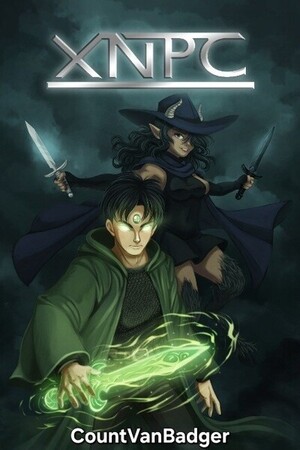Chapter 1:
Prologue: Underworld
The Hero's Shadow
The scene is familiar to him: A great, cavernous temple dug out beneath Chicago’s magisterial office, the lowermost depth of the Mithreum. The subterranean ritual hall is the beating heart of the complex and the vast chamber reverberates with the whispering echoes of generations of feasting warriors. At the center of the vault, a circular platform rises above the heads of a small crowd. On the dais stand a boy, his mother, and the grey-haired Mithrarch. Lording over them at the precise center of everything, taller than any man, is an iron statue of Mithras himself. The god glows fiercely in a shaft of sunlight which has been channeled from the surface by a system of mirrors; the only other light in that underworld comes from a few torches and lanterns held by some in the crowd.
The boy finds the atmosphere of the place heavy and oppressive. Even though the air is cool and clear, he feels that he must struggle to draw in each breath. It is not the weight of the history of that space troubling him, but rather the weight of expectation. He has no doubt as to the outcome of the ceremony that is soon to begin; he is simply disgusted by the world that has given rise to it.
The ray of light shining down from above is fading as sunset rapidly approaches. The Mithrarch leads the boy up to the towering figure of his god while reciting an invocation in Latin. His speech, trained by years of repetition, is timed perfectly to conclude as the last threads of sunlight are being unwound. The old man, wearing a set of armor patterned after the ancient legions and draped with a red mantle of Mars, guides the boy’s hand to the hilt of a sword held out by Mithras in a gesture of offering. The realistically sized blade looks like a child’s toy in the oversized hand of the iron deity. As the sunlight dissolves entirely, the boy grips the sword as if to take it, but it is part of the statue itself and would not easily be removed. Instead, he must endure the night in the pose of accepting the sword and then the second part of the ritual will take place at dawn.
It is said that this first stage of the rite is meant to imprint the initiate with a permanent sense of holding a weapon which is itself supposed to aid in completing the task that will be required at dawn. However, the boy already knows this to be nonsense. Even a century ago, statisticians had buried the claim that the tedious task made any difference on the outcome, and yet the tradition continued with relatives and strangers gathering to watch the farce. Despite that the ritual was supposed to be a secret, the boy had bribed a few of his older peers to learn of its nature and then set about researching it at the library. He was already bitter enough even at his young age that when he became aware of what the ceremony entailed, he recognized that the event was no mere rite of passage. He evaluated the affair with eyes unclouded by sentimentality. Rather than an altar, that dais was a stage and he would be on public display. Rather than a celebration of his progress toward adulthood, it was a way to measure his worth.
The true purpose of the ritual, as far as society was concerned, was to further establish distinctions between individuals and create a hierarchy. Even though failure at dawn would represent no formal setback, it would be noted and remembered by onlookers. This would allow them to decide who was capable and who wasn’t, even among those who already stood above the common folk.
The greatest factor in determining the hierarchy of society is virya, the dynamic energy generated by living beings. All lifeforms can manipulate this power in varying ways. In the deep forests, ancient trees pool their energy to create phantasmal suns that shine for them through the dark of night and the fiercest beasts of the farthest wilds hunt with shimmering claws that rend stone as easily as flesh.
An ordinary man may expend his reserve of virya in order to sprint a bit faster or draw slightly greater strength from his muscles, but the extraordinary minority possess reserves which are orders of magnitude deeper and invoke this power to outstrip all human limitations. In the barbaric times of past eras, the smallness or vastness of one’s stock of virya was almost the sole measure of worth in society. There has been only a little change in this attitude by the time of the 20th century, due in no small part to the partial heritability of expanded reserves of virya and thus the enduring importance of marriages for political alliance and good breeding.
Among those who possess a greater share of virya, the next form of ranking comes from the possibility of shaping that energy into a unique, personal weapon referred to by various names such as ergaleion or impositum. Those who achieve this stand at the top of society, but even amongst this few there must be ways of sorting the best from the least. For instance, a ritual which demands an unknowing child to bring forth an ergaleion for the first time without practice and thus creating a scenario wherein some fail while others spectacularly display their superiority.
That is what awaits the boy at dawn. When he learned this, he knew immediately that failure would mean being counted as one of a lesser sort and resolved to train in secret until he surpassed the task on his own. Now he simply has to wait through the long hours of a tedious night. The Mithrarch, having overseen the rite countless times, is the first to grow bored and stoically withdraws to a small table on the platform where he sits and reads by the light of a lantern. Most of those in the assembled crowd drift away during the night, but the boy’s mother remains at his back waiting with serene grace. It is permitted for an initiate to take a break and have a parent step in to wrestle with Mithras in his place, but of course to do so would mean to lower one’s appraisal by society.
She is a kind woman who cares only for supporting the boy, but he would not allow himself to make such a show of weakness. He has prepared himself for the tiresome task and easily passes the hours standing in front of the statue by using his reserve of virya, which is steadily increasing as he approaches puberty, to relieve the fatigue in his legs and bolster his muscles.
Finally, the dawn drew near. The boy could tell this even before the mirrors brought forth the first light due to the reappearance of some of the onlookers. When the boy and the statue were once again illuminated by a beam of sunlight, the Mithrarch rose from his seat and came to complete the ceremony. He gently peels the boy’s aching fingers from the hilt of the sword and leads him slowly toward the eastern edge of the platform. They walk one step at a time with the priest chanting a verse in Latin after each pace. The aura of sunlight expands ahead of them. When they arrive at the prescribed location, the old man briefly presents the boy to the crowd, then instructs him in English on the task he should try to complete.
The boy isn’t listening, instead he carefully scans the faces of those standing below to watch. Most are strangers, curious about any who undertake the ritual, but he also recognizes others from the neighborhood where he and his mother live. He assumes that a few must be agents of his parents’ estranged families checking on the outcome of their hated union.
The Mithrarch concludes his speech and asks the boy to attempt to draw out his virya, give shape to his ambition, and manifest it in the form of a weapon. The boy slowly raises his right arm and stretches out his hand. Careful not to reveal that he has already practiced the act by moving with haste, he channels power from deep within himself and projects it out from his palm. A murmur crosses the crowd when it first becomes visible as a transparent distortion causing his hand to waver in front of their eyes as if seen through a haze of hot air. The mirage intensifies until it looks as if reality is being twisted and churned, then suddenly the vortex reverses and from the gap between ravelled and unravelled space appears a curved dagger around which the boy’s hand closes before it can fall under the influence of gravity.
The blade is jet black and looks to be made of stone rather than metal. It gives the impression of being the fossilized fang of some primordial beast rather than a refined instrument of war. The boy holds the dagger up to be inspected by those present, however, as he has been expecting since the first time he had succeeded in manifesting it, the reaction from the onlookers can hardly be considered approval. Whispers sound out in the gloom of the temple.
His ergaleion is neither an elegant sword nor a sturdy axe. It is not a mighty mace nor even a reliable spear. His is a tool associated with murderers and schemers. The boy watches the faces of the crowd as they form their opinions of him and pass judgement on his fate. The only observers who are not taken by antipathy or distrust are the Mithrarch, impassive as always, and his mother whose love is unconditional.
At that moment, an unknown feeling that has long troubled the boy is finally understood. The ordering of the world becomes clear to him and he sees the lines of battle drawn. All those aside from the boy and his mother are enemies; the entire world is against them. As the Mithrarch prepares to end the ceremony by conferring a name onto the boy’s blade, he bares his fang in defiance against the world.
In the tongue of the boy’s ancestors, the old man’s voice roars out through the hall:
“Heldengeist!”




Please sign in to leave a comment.